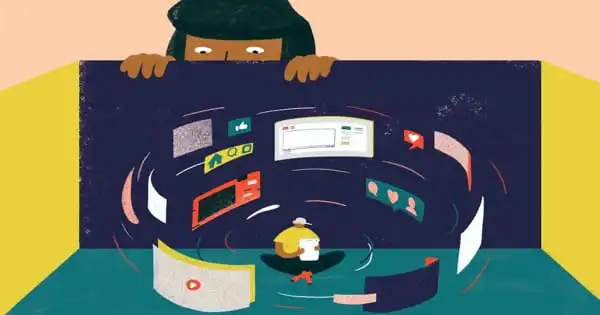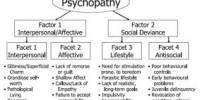A new study of nearly 1,200 people found that time spent with digital technology throughout adolescence has no effect on long-term use, implying that concerns about widespread tech addiction may be exaggerated. Parental restrictions on teenage technology use showed no long-term effect on use in adulthood.
“Put down your phone!” “I’m done with video games!” “Ten minutes more on YouTube, and you’re done!”
Kids growing up in the mobile internet era have heard them all, frequently from well-meaning parents concerned about long-term consequences of overuse. However, new research from the University of Colorado Boulder reveals that such constraints have little influence on technology use later in life, suggesting that fears of widespread and long-term “tech addiction” may be exaggerated.
“Are many people becoming addicted to technology as teenagers and remaining addicted as young adults? According to our findings, the answer is ‘no.’ “Stefanie Mollborn, a sociology professor at the Institute of Behavioral Science, is the study’s principal author. “We discovered that there is only a weak association between early and later technology use, and what we do as parents matters less than most of us imagine.”
This research addresses the moral panic about technology that we so frequently encounter. Many of those anxieties were anecdotal, but now that we have data, they don’t seem to be borne out.
Joshua Goode
The study is the first to use such data to assess how digital technology use evolves from childhood to adulthood, analyzing a survey of over 1,200 young adults as well as comprehensive interviews with another 56.
The information was acquired before to the epidemic, which resulted in substantial increases in the usage of technology as millions of children were obliged to attend school and socialize online. However, the authors believe that the findings should provide some relief to parents who are concerned about their children’s increased screen usage.
“This research addresses the moral panic about technology that we so frequently encounter,” said co-author and doctorate student in sociology Joshua Goode. “Many of those anxieties were anecdotal, but now that we have data, they don’t seem to be borne out.”
The article, published in Advances in Life Course Research, is part of a four-year National Science Foundation-funded project to investigate how the mobile internet age is genuinely affecting America’s children. Previous research by the team indicated that time spent with digital technology has increased by 32% among 2- to 5-year-olds and 23% among 6- to 11-year-olds since 1997. Even before the pandemic, teens spent 33 hours each week outside of school using digital technologies.
The latest study focused on young adults aged 18 to 30, asking dozens of people about their present digital use, their use of technology as teenagers, and how their parents or guardians controlled or supported use. The researchers also looked at survey data from a nationally representative sample of roughly 1,200 people, following them from youth to young adulthood.

Surprisingly, parental policies such as imposing time limits or forbidding children from viewing television during mealtimes had no effect on how much the study respondents used technology as young adults, according to the researchers. Those who grew up with fewer devices in the household or spent less time using technology as children tended to spend slightly less time with technology in young adulthood – but the association was statistically weak.
What factors influence how much time young adults spend using technology? According to the findings, young adulthood is a difficult time. Young adults who hang out with a lot of parents spend more time with technology (perhaps as a means of sharing parenting advice). Those with single friends are more likely to use than those with married acquaintances. Meanwhile, according to the report, college students say they spend more time with technology than they have in the past or plan to in the future.
“They feel like they use technology a lot because they have to, but they have it under control, and they see a future when they can use less of it,” Mollborn explained. According to the writers, technical innovation has caused moral panic among older generations since the advent of comic books and silent movies, as well as the debut of radio and television.
“We see that everyone is lured to it, and we feel concerned because we think it’s going to damage today’s young,” Mollborn remarked. Excess can have negative consequences in several circumstances. For example, the researchers discovered that adolescents who spend a lot of time playing video games got less physical activity. However, usage of digital technology did not appear to crowd out sleep among teenagers, as some had anticipated, and use of social media or online movies does not appear to crowd out exercise.
In many ways, Goode observes, today’s youth are just substituting one kind of technology for another, such as streaming YouTube instead of watching TV or texting instead of conversing on the phone. That is not to argue that no one ever becomes hooked, or that parents should never set restrictions or discuss the advantages and downsides with their children, as Mollborn emphasizes.
“These findings indicate that the majority of American teenagers are not becoming irreversibly addicted to technology. It conveys a message of hope.”
She just initiated a new study in which she interviewed kids and parents between the ages of COVID-19. Interestingly, she noted, parents appear to be less concerned about their children’s usage of technology during the pandemic than they were previously.
“They recognize that children want social interaction, and that the only way for them to obtain it right now is through screens. Many of them ask, ‘Where would we be right now if it weren’t for technology?'”
















